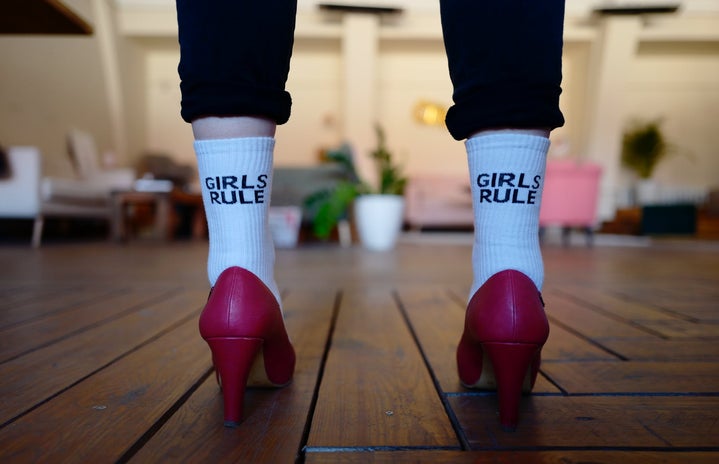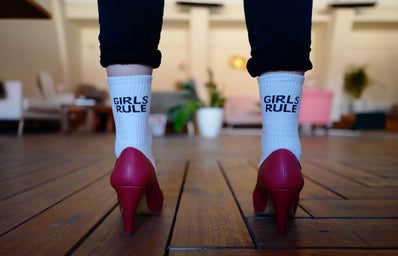I used to hate the color pink. I refused to wear skirts or dresses. I wore gym shoes with every outfit. My hair was in a ponytail everyday. I never wanted to play dress-up or play with dolls. I wanted to be “cool.”
These ideas of what was “cool” were not inherent to me, though. At a very young age, I loved to play with my American Girl doll and dress her up in matching outfits with mine. I would play with my stuffed animals and loved to play pretend, but these ideas of what was fun and what was cool changed around the age of nine. At that time it became embarrassing to act that way or to play that way. I didn’t want to be seen as a “little girl.”
I was still a little girl, but it was no longer something that I was proud of. I thought that I needed to be tough. I needed to play like the boys. I needed to excel in gym class. I needed to prove myself. I could never cry. I truly didn’t want to be like other girls because that was “lame” and looked down upon. I wanted to be different from other girls. I was a “tomboy” who could play with the boys and was above other girls. I liked the idea of being different from the others. I thought that was who I was.
But now in my older age, I understand that I’m not “different than the other girls,” and I don’t want to be. I like the color pink and I want to dress cute. I enjoy the sappy movies and sometimes I do cry. I know that these are all acceptable traits, but there is a part of me that still feels embarrassed from it. There is a part of me that feels like it’s weak. I still find myself feeling uncomfortable with my femininity. But I know that my behavior is not totally my fault, but the internalized misogyny I grew up on.
I grew up believing that women were weaker, slower, less deserving, cowardly and beneath men in every way. Phrases like “you’re acting like a girl,” “don’t be a sissy,” and “grow some balls” were so commonplace. They made me believe that I truly was inferior as a girl, so I did my best not to act like a girl. I wanted to act like a boy because that would give me the respect I deserved. I judged other girls for wearing dresses or having bows in their hair because that was so girly and childish. This mindset affected my self-esteem and my self-image for a long time afterwards. I didn’t know how to be comfortable with my body or my emotions. I didn’t know how to stand up for myself or capture people’s attention as I was. I didn’t know how to love myself for who I was.
This is a problem that has been plaguing human beings for a long time. The gender roles and stereotypes that we put upon our children from a very young age causes confusion, disappointment and sadness because of the belief that they aren’t enough as they are. This causes problems later in life because this internalized misogyny is still present and still affects their daily attitudes. I see this, and I understand it, because I relate to it.
But I do have hope because I slowly see the conversation of femininity changing. Figures like Harry Styles and Billy Porter have shown the power of wearing a dress, the Always #LikeAGirl campaign has shown the strength in playing like a girl, superheroes like Captain Marvel and Wonder Woman have shown the courage of a woman saving the world, and vice president Kamala Harris has shown the durability of a woman in politics. Femininity is forceful and I see more and more people embracing themselves and not being afraid of their femininity. Not being afraid to wear pink, express their emotions or play how they want to play. I am learning to love the expression of my femininity in the hopes that the next generation of young kids will see that it is not a weakness.


